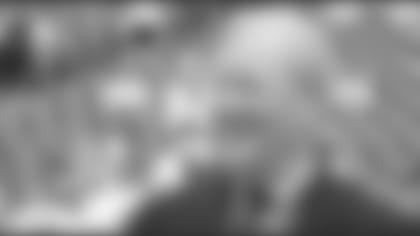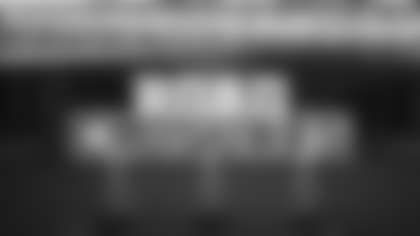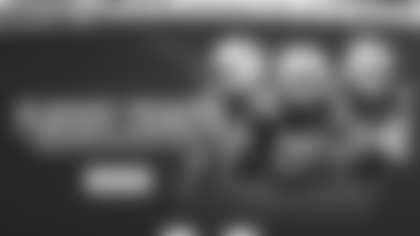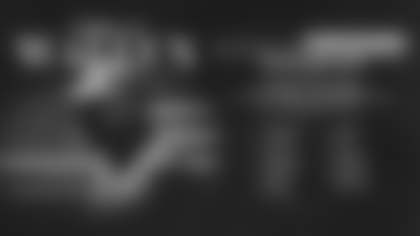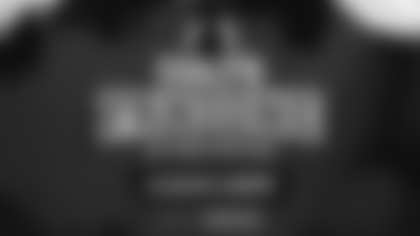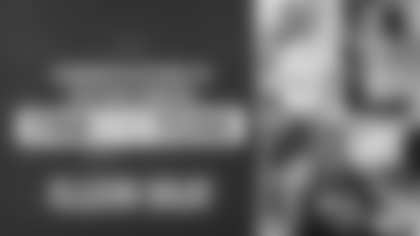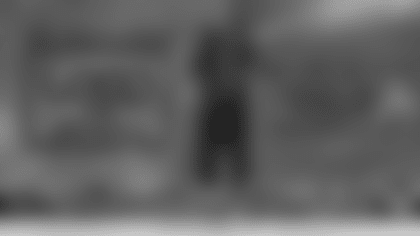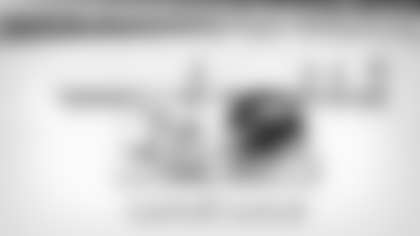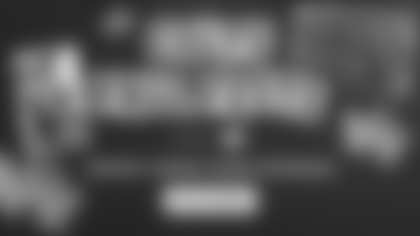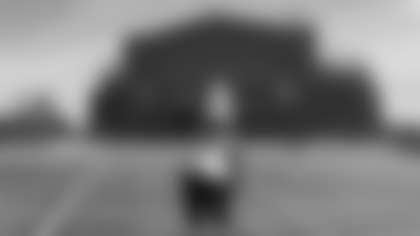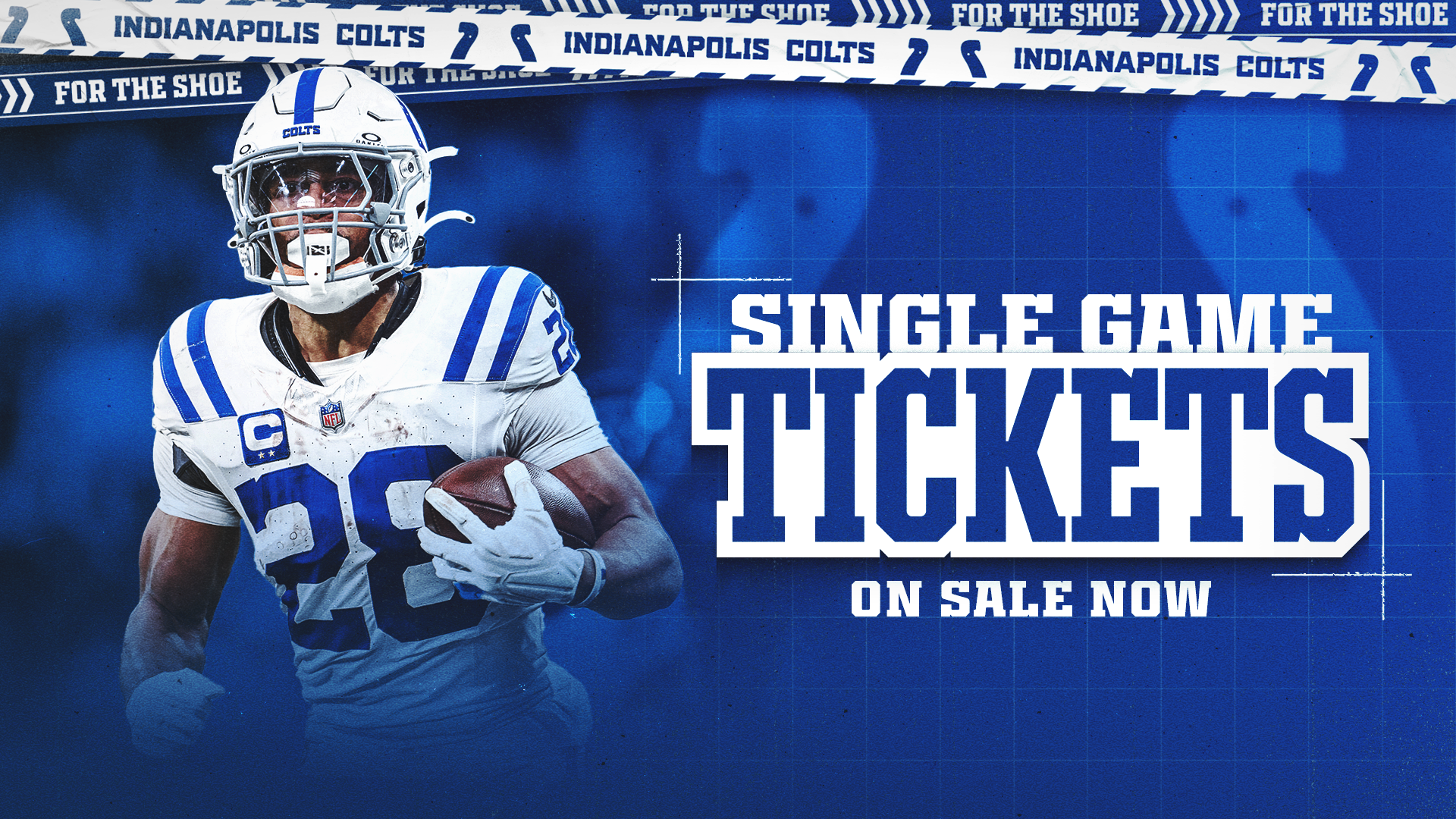Bill Polian, in his 13th season as Colts president, has a resume unique in the NFL. The only man to win NFL Executive of the Year six times, Polian in the 1980s built the Buffalo Bills into a four-time Super Bowl participant. In the mid-1990s, he built the expansion Carolina Panthers into a team that made the NFC Championship Game in its second season, 1996. Since joining Indianapolis in 1998, he built the Colts from a 3-13 team in 1997 and 1998 into one that has made the playoffs 10 of the last 11 seasons, including AFC Championship Game appearances after the 2003, 2006 and 2009 seasons, AFC South titles in 2003, 2004, 2005, 2006, 2007 and 2009, Super Bowl appearances following the 2006 and 2009 seasons and a Super Bowl championship following the 2006 season. Each week during the season, in The Polian Corner, Polian and Colts.com will discuss issues pertinent to the Colts and the rest of the NFL.
Q: A 36-14 loss to the San Diego Chargers Sunday – a tough loss, obviously. What did you see when you reviewed the game?
A: I always believe – and this was a Don Shula axiom – that whenever you go out there, you have to take something positive away. I thought that there were parts of the game on offense where we executed pretty well. There were parts of the game defensively where we didn't execute as well as we should have, but on balance defensively, it was a pretty good performance. The thing I liked best about it was it was our kind of game defensively. We flew around. We kept everything in front of us. Yeah, they completed some passes, but they're the No. 1 offense in the league. They're going to compete some passes. When the game was on the line and we had an opportunity to stay in the game, we held them to field goals each time down. That was as good a performance that we've had from the defense in the last little while. That was really positive. And our coverage units and our kickers did a great job. We made it tough for (Chargers running back) Darren Sproles to handle the ball, and we really did a pretty good job of keeping a great player in check. He has hurt us very badly in years past and he didn't do that Sunday, so that was a real positive and something we can build on. We're going to face a great returner this week with Dallas. The bottom line is I think there were some real positives. I thought the receivers did a good job getting open. I thought we delivered the ball on time in most cases. The biggest breakdown was obviously protection and the ability to run the ball. That goes hand in hand, obviously. On that one, there wasn't a lot positively to say about it. The bottom line is, we have to work to get better. That's what we'll do this coming week. That game essentially meant only a half-game in the standings because it's only a tiebreaker. Everybody else didn't gain any ground in the division. The division race is still wide open.
Q: You said from early in the season the division probably would go down to the 17th week of the season . . .
A: I also said I thought Jacksonville would be in the hunt all the way and they are. It's a tight race and it's going to be decided in the last month – as it always is.
Q: How much will the experience the young players are getting in meaningful games pay off?
A: You look at the defense: (Linebackers) Pat Angerer and Kavell Conner played just wonderfully. They did a great job. Rico (defensive tackle Ricardo Matthews) is coming into his own and making plays. That's really good. He's doing a good job. Those are guys on the defensive side of the ball who have had to step in and do a job. They've done a really good job of it, and they're getting really good experience. (Running back) Javarris James came back and he has made a contribution. He has done pretty well, and of course, (rookie wide receiver) Blair White. (Tight end) Jacob Tamme, those of us who are in the building knew how good Jacob was. That's not a surprise, but Blair White has come on and played exceptionally well. That's a real plus. Those things benefit you in the long run, and they'll benefit us as we come down the stretch. Hopefully, this week we'll begin to see a return of fellows that really can help us and make big contributions for us. I would think (running back) Mike Hart would probably be the guy that you'd think most of this week. I think (running back) Joseph (Addai) and (safety) Bob (Sanders) would be a little while away yet. (Linebacker) Gary (Brackett) could be back this week. It's a 'could.' It's not for sure, but the signs sort of point positively in that direction. We'll be anxious to see how they turn up Wednesday.
Q: Can you address the kick return game, and what causes problems when there's ineffectiveness?
A: It's principally the return guy. There is an art to returning kickoffs. It's something we refer to as steaming it up there. Kickoff return men typically don't make people miss, or if they do, it's at the second level after they're through the hole. You can't hesitate. Let's start with fielding the ball. You have to field the ball cleanly. You should field it on the run moving forward. Then, you have to hit the seam that the return design has created at 100 piles per hour. At that point, if you're strong enough, you might run through a tackle or two. If you're fast enough you might get into that seam and out of it, and at some point you might make somebody miss. But the key thing is to secure the ball on the run moving forward and trust that the blocking will open it up. That hasn't been happening since (cornerback) Justin Tryon went down, and Justin is a fellow that we think will be back next week, so we're very hopeful that we can get him back there and get him doing that. He was good at it, as was the guy we started the season with (Devin Moore). Unfortunately, he got blown up in Jacksonville. When you lose two guys who do that quite well, it's hard to find a third. That's a specialized skill. Clearly, we haven't done that nearly well enough. Blair White is a little bit different in the sense that he's not a great speed burner, but he is so courageous and so decisive that he was really decent at it, and actually very good as a punt returner. But with his injuries, and as thin as we were at receiver, we could not run that risk. That's been a bad part of our game, a sub-par part of our game, and hopefully with Justin coming back we can rectify that.
Q: Can you discuss the pass protection, run blocking and run defense? It seemed like all three areas struggled Sunday?
A: With respect to the pass protection, we did not pass protect well at all. There were too many instances of guys breaking free and pressuring the passer. I believe three of the interceptions were directly caused by that. In terms of the running game, we did not move anybody an inch in the running game. It was really frustrating, and I don't blame fans for being frustrated about it. Now, they (the Chargers) are quite good, but that was by any measure a sub-par performance in terms of the running game. Now, their running game, I would beg to differ a little. They did gain some yardage, but not consistently. And with a running game that is as explosive as theirs is – and which is as well-designed as theirs is, and with a passing attack that's as good as theirs is – they're going to get some plays. You're not going to shut people down. This idea that you hold people to 55 yards rushing in a ballgame is not really accurate. I thought we did a pretty good job against their running game – not great and not as good as we can do, but pretty good given the circumstances.
Q: What is the status of Joseph Addai and Mike Hart?
A: The answer is we're hopeful we get Mike Hart back this week. That's our hope. I can't say for sure, but there are positive signs along those lines. Joseph might be a bit longer. I don't know specifically how long, because his issue is one of strength in his arm, which is driven largely by nerve regeneration and improvement. Only Mother Nature knows the answer to that, although there is improvement. There are positive signs. He's out practicing and he's bouncing around and anxious to get back, as soon as the doctors clear him. I don't think that will be terribly far away, so that will help. Mike brings a different style. Joe brings a different style. Donald Brown brings a different style. Donald's style, which is speed and acceleration and making people miss – which he did Sunday night in the passing game – is more suited to playing a different type of defense than the one we faced Sunday. In that type of game, you'd probably rely more on Mike and Joe, if you had them. Unfortunately, we didn't have them, so Donald had to carry the whole load. It's unfair to judge him by statistical performance, because he didn't have much of a chance most of the night.
Q: Do you think the Colts were mentally drained Sunday?
A: I'm not sure it's mental. As I often say with our staff, 'Right church, wrong pew.' I think you're right on the money. I don't think it's mental, however. If you stop think about this – and this is not an excuse, but you're getting to the heart of the matter here in terms of how we approach the season and how we approach the rest of the season. If you look at it, we had Sunday night nine starters out and two top backups – Anthony Gonzalez, Dallas Clark, Austin Collie, Joseph Addai, Brody Eldridge, Mike Hart, Justin Tryon, Gary Brackett, Melvin Bullitt, Bob Sanders, Clint Session. Those are the ones I can count off the top of my head. That's 11 players – 25 percent of the 45 guys you dress, in round numbers. Every single one of them is either a game-changer, as is the case with Dallas Clark and Bob Sanders, or a top quality winning football player in the National Football League – an example being Austin Collie, Joseph Addai, etc. The bottom line is when you have 25 percent of your team out for the better part of a month and maybe more, the stress on every other position is extraordinary. Guys are doubling up on special teams. Kavell Conner is playing on special teams and starting at linebacker. That's one example. Pat Angerer is doubling up on special teams and starting at linebacker. You begin to stretch that rubber band to the point where it's close to the breaking point. That's what injuries do to you. They erode your depth. They erode the ability of particularly your young players. They have to carry a load they should not have to carry. Sooner or later you run out of gas. And I don't think you run out of gas mentally or emotionally. You run out of gas physically because it's just such a taxing situation. Now, you add to that the fact that we're in a pennant race. This is not a team that's building where these young players are out there learning their craft with nothing at stake. This is on national television every three weeks with a lot at stake. It's hard. It's a hard grind. Unless we get some people back and as I said earlier, my hope is we will, we've got that rubber band pretty close to the breaking point. Again, it's not an excuse, but it's a good question and one I've been pondering for a couple of weeks now. I think that's clearly the answer.
Q: And it's awfully hard to alleviate the pressure anywhere on the roster . . .
A: No, you can't. For example, we made the decision to put Anthony Gonzalez on injured reserve because we needed that spot just to line up and play. Blair White was down. Austin was gimpy from the heel injury, so we needed that spot to play. Gonzo and I talked before the game (Sunday). I said, 'How are you doing?' He said, 'I hate to tell you: I feel pretty good.' I'm glad that he does, because it means he's heading down the right road rehab-wise, and he'll be back next year better than ever. That's what happens. You get stretched to the point where you have to make roster decisions just to play a game, and you end up coming out in some cases on the short end of that one. We know that going in. We know what the odds are when you make those decisions, but sometimes you don't have a choice. In Gonzo's case, we hated to do it. We agonized over it, but we felt like we didn't have a choice. We had to put healthy people on the field. At the same time, (cornerbacks) Jerraud Powers and Jacob Lacey are just back. They're back two or three weeks from extended injury. It has been a disaster from an injury standpoint. It has stretched the rubber band. I don't think it's mental. I think our guys fight like the devil. There's no question about that. But we've asked an awful lot of a lot of young players. They will be better for it, but they're paying the price right now.
Q: What role will Angerer play when Session and Brackett return?
A: First of all, he will play a major role on special teams. I'm quite sure he will be in there in nickel in certain situations. We had him as 'Sam' (strong) linebacker for a while when Gary was healthy. Philip Wheeler has played really good football since he has been back in the lineup, so I don't know if we would make a chance there. My guess is we probably would leave Patty in a situational role for a while to let him sort of catch his breath to be ready to relieve Gary in certain situations. He has played exceptionally well and he is a leader and has become one. We're very happy to have him.
Q: Surprised at all with Angerer's quick development?
A: Honestly, no. Everything we saw of him at Iowa, and everything we knew of him from the Iowa staff – who we respect greatly – really told us that he was going to be a contributor very early. If you knew about Pat Angerer's background, if you knew what kind of football player he was at Iowa, if you knew where he ranked in that program, you thought to yourself, 'This is about as good a bet as you can find.' He has proven to be that.
Q: Why did the Colts let offensive linemen Ryan Lilja and Jake Scott go? And do you regret that?
A: Jake Scott, quite honestly, was a mistake on our part. It was a classic free-agency mistake that everybody makes from time to time. The system is designed to force you to make it. The agent makes an offer, which at the time – before free agency – sounds outrageous. You reject the offer and the conventional wisdom is, 'Hey, let them go out there on the market place. We don't think he'll get that.' If you follow sports, you know the Yankees are doing that with Derek Jeter right now. At some point in time, either the market goes up and you're forced to meet the agent's price, or the market comes down and the agent theoretically ought to bring the player back at the market price. In football, almost never will the agent bring the player back to the team he left, simply because he wants to teach the team a lesson. That's what happened in Jake's case. When the market settled, we offered Jake more than Tennessee had offered him, but the agent would not bring him back here. I'm not decrying that. That's his right, and Jake has gone on to have a terrific career in Tennessee. It was a mistake on our part probably not to meet the price in the first place. I'll take full responsibility for that. It is a classic conundrum that you face in free agency, but I've told our staff on numerous occasions, 'In free agency, the likelihood is you pay the agent's price, or you don't get the player.' We didn't pay it, so it's our mistake. In Ryan's case, he was coming off a year-long injury. We just felt that the injury history was such that it didn't make sense for us to pay the kind of money it was going to take to keep him. As it turns out, he's had a wonderful year in Kansas City. That's not a decision I would second-guess or say was a mistake. It's tough to lose a guy like that, but you do have to make money decisions. That was a position where we felt like maybe we had some younger players who could step up and play pretty well. That hasn't been the case. So, it has turned out to be a mistake, but I wouldn't second-guess the decision in the first instance. Those things happen. I certainly have second-guessed the Jake Scott decision many, many times and it's my fault, and it's a mistake. We should have kept him.
Q: Can you comment on the play of Donald Brown?
A: Donald is a stretch-play runner, which used to be the staple of our offense. He's an outside-the-tackles runner, basically. He's a really good pass-catcher, very good in space. He's a good finisher and he has really good ability to slash – and good vision. He is much more like a Dominic Rhodes than he is Shonn Green (of the New York Jets), for example. If you ask him to run a belly play straight-ahead and you don't get anybody blocked in the middle of the line, then he's not going anywhere. Donald is 205 pounds, so he's not going to run over anybody. It looks ugly, but as I said, in that case, it's 90 percent blocking. The back has to have a place to run unless he's 255 pounds. And even in the case of their guy, who's a solid, hard-hitting, 240-pound back, he was getting two yards because Pat's (Angerer) collisioning him in the hole or Philip's (Wheeler) collisioning him in the hole. He's falling forward for two yards, so it wasn't like Donald was terrible. It's really a function of style. Mike Hart would be better-suited to that kind of game than Donald would be but, of course, we didn't have Mike.
Q: How can the official miss a call like the pass interference that wasn't called on Chargers safety Eric Weddle Sunday?
A: Commissioner Tagliabue in defending the officials used to have a great line. He said when he was a boy growing up in New Jersey rooting for the Brooklyn Dodgers, every time a call went against the Dodgers, people said, 'We wuz robbed.' The fans' general reaction is no call ever went for us and every call goes against us. In reality, that's not the case. The style of playing varies from crew to crew, and I think in a couple of buildings around this league there is an effect that benefits the home team. We're not one of them, but I think there is an effect that benefits the home team. But you know that going in and you tell that to your team going in, 'Don't expect to get any calls in this building this afternoon. They're not going to come. That's the history of the place.' We monitor what officiating crews do and what officials do and where they do it. You can discern patterns, and I don't think there's anything untoward or anything that is surprising in that. On balance, I have very little argument with the officials. There are some calls they miss that you get upset about. But my feeling is if it's a miss simply because either the guy didn't see it or he just missed it – which is human nature; they're not after all perfect; none of us are – you just chalk that up to experience and move on. If the miss was because the official was out of position, or because he misinterpreted the rule or because he wasn't honing in on new techniques that are being employed, then that's a little more troublesome. That's where we correspond with the league office, with the officiating department – and every team does it by the way; it's league-wide – they will, in turn, answer our questions. If we send in a question on what most people believe is a controversial play and the answer comes back, 'We missed it,' we just shrug our shoulders and move on. That's just the way it is. It happens. If either they say we are wrong in our interpretation of the rule or they equivocate, then we'll get back to them and ask why. We want to make sure we know how every rule is being interpreted every week. But by and large, we don't have very many complaints with the officials. Over the course of a season, it evens out. There are some ballgames and some calls that stick in your craw more than others, but the bottom line is you have to overcome it and if you're a good team, you will overcome it. And you can never use that as a crutch. There are games where it's off the charts and those are the ones you never forget, but the bottom line is you have to overcome it. That's part of the game.
Q: If the Colts finish tied with Jacksonville or another team, how does the tiebreaker scenario work out?
A: I'll have to give it off the top of my head. If it's a three-way tie, that's the most difficult one. The first thing you do is break the head-to-head ties among the three teams. The first thing you would do is go to head-to-head competition among the three teams. Usually one will go out in that circumstance, and then that one would be discarded. You would then break the other tie. If it's a two-way tie, the first thing you do is go head-to-head. In the scenario you're describing, if we were to win out the rest of the way, the head-to-head would be even with Jacksonville and Houston. Then, you would go to division opponents – how did you stack up against the division throughout the year. Then, you would go to conference opponents. Then, you would go to common opponents and after that, I'm drawing a blank. But it usually never gets past the conference record. That's why our fate is in our hands the rest of the way.
Q: Quickly, your thoughts on the Dallas Cowboys. They're 3-8, but 2-1 in their last three games and very nearly 3-0.
A: That's obviously the case – the 2-1 and almost 3-0 (with a narrow loss) against the Super Bowl champions (New Orleans Saints). That's where they are since Jason Garrett has taken over (as head coach). I've known Jason a long time and have high regard for him. I know he'll do a great job there. He already has them focused and energized and playing really sound football. Despite the fact that (quarterback) Tony Romo is hurt and probably won't play against us, they have (Jon) Kitna, who really has done a good job. He has stepped in and done a heck of a job. He's really a good quarterback – maybe the best backup quarterback in the league. They have two great running backs in (Marion) Barber and Felix Jones. Felix Jones is the home-run hitter and Barber is really a ferocious runner. They can mix and match with them and when they run the ball, they are a really good offensive football team because they have the great tight end (Jason Witten) and they have those speedy wide receivers who can get downfield and catch the ball. (Receiver) Dez Bryant is a remarkable acrobatic young receiver. They have all kinds of weapons. The hype was probably more than what was deserved at the beginning of the season, but they're still an immensely talented team. Then, on defense, there has been a change there. Paul Pasqualoni has taken over as the defensive coordinator. He's an old friend and a good friend, and a good coach. He is much more in the (Bill) Parcells style. You're going to see a big, physical 3-4 that relies on the outside linebackers to create the rush. That's DeMarcus Ware and our buddy from Purdue (Anthony Spencer). They can get up the field, and they can get after you. They have a big front three and big, big inside linebackers who just step up there and take you on and take away the run. They're very much like New England, except the outside rushers are probably a little more explosive than New England has. This is a team that has had a complete changeover. They are more conservative in the secondary, much more like New England plays. They're not going to give you many big plays, and they're really going to beat you up up front on defense. DeMarcus Ware is up there with Dwight Freeney as a guy who can do it all as a rusher. This is a tough team. We're hopeful we can get some people back, but this is not an easy task. They're very different than the team that was playing in fits and starts before Jason took over.



